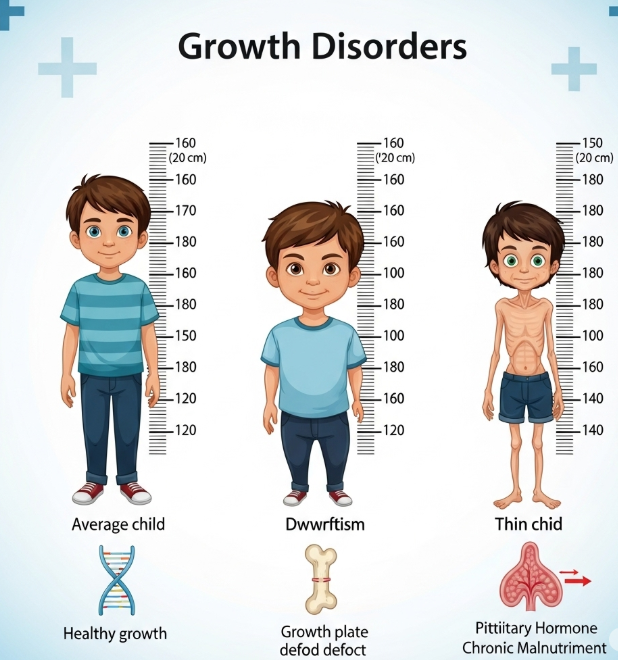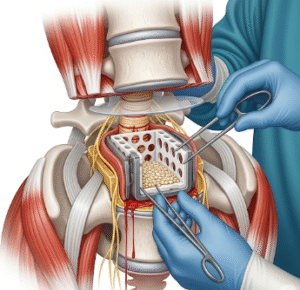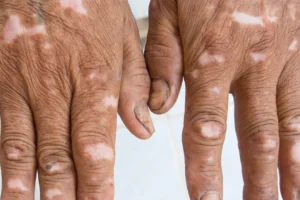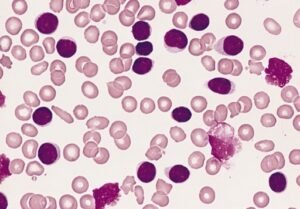Overview
Growth disorders refer to a group of conditions where a child’s growth rate is below the expected level for their age and gender. In South Korea, pediatric endocrinologists identify and manage growth disorders early to optimize health outcomes. These conditions may be caused by hormonal imbalances, genetic factors, or chronic illnesses.
Symptoms
- Short stature compared to peers
- Delayed or early puberty
- Slow weight gain or abnormal body proportions
- Fatigue or weakness
- Delayed motor or developmental milestones in some cases
Early detection is crucial for timely intervention.
Causes
- Hormonal Deficiencies: Growth hormone deficiency or thyroid hormone deficiency
- Genetic Factors: Conditions such as Turner syndrome, Noonan syndrome, or familial short stature
- Chronic Illnesses: Heart, kidney, or gastrointestinal disorders affecting nutrition
- Malnutrition or Poor Diet: Insufficient nutrients to support normal growth
- Psychosocial Factors: Emotional stress or neglect can impact growth
Risk Factors
- Family history of growth disorders
- Chronic medical conditions in the child
- Hormonal imbalances
- Poor nutrition or malabsorption
- Delayed puberty or endocrine disorders
Diagnosis
- Detailed medical and family history
- Physical examination and growth chart tracking
- Blood tests for hormone levels and nutritional markers
- Bone age assessment through X-rays
- Genetic testing for suspected syndromes
- Additional tests to evaluate underlying chronic illnesses
Treatment Options in Korea
- Hormonal Therapy:
- Growth hormone injections for deficiency or specific syndromes
- Thyroid hormone replacement if hypothyroidism is present
- Nutritional Management:
- Tailored diet plans to ensure adequate intake of calories, protein, and essential vitamins and minerals
- Treatment of Underlying Conditions:
- Managing chronic illnesses that may interfere with growth
- Regular Monitoring:
- Periodic growth measurements, blood tests, and imaging to track progress
- Specialized Pediatric Endocrinology Care:
- South Korea has advanced pediatric endocrinology centers for diagnosis, treatment, and counseling
Prevention
- Early detection through regular pediatric check-ups
- Balanced diet and proper nutrition
- Prompt management of chronic illnesses
- Awareness of family history and genetic risks
Prognosis
With timely diagnosis and appropriate treatment, many children with growth disorders in Korea achieve improved height and overall development. Prognosis depends on the underlying cause, severity, and how early therapy is initiated. Regular monitoring and follow-up ensure optimal outcomes.













